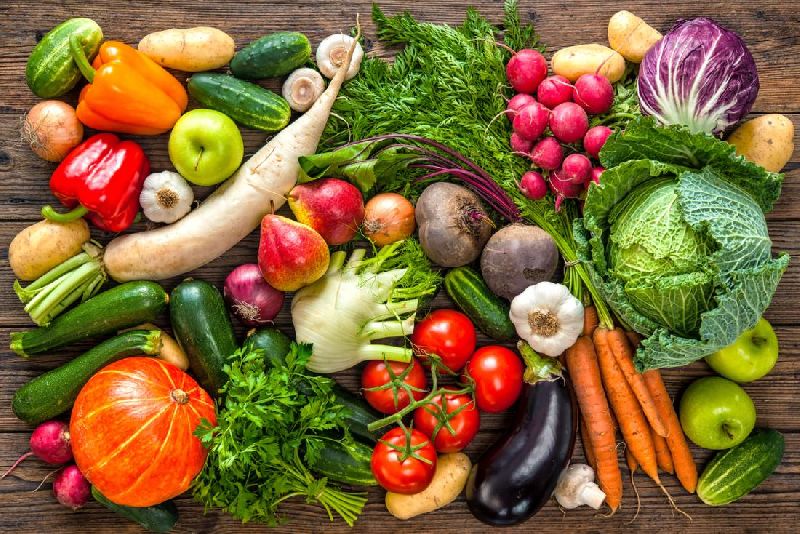More than fresh: choosing vegetables for everyone

Our favorite fresh vegetables are not available all year round. Does this mean that we have to do without them when their season is over, or are frozen and canned vegetables a good alternative?
Fresh vegetables straight from the garden are ideal for many people, and freshness is an important factor when buying certain products. However, vegetables already lose their nutrients when they are harvested. Summer peas can lose up to half their vitamin C during the day or two before they are cooked. So, to maximize the nutritional value of vegetables, it's time to race at the table.
There are three main forms of selling vegetables - fresh, frozen or canned. Contrary to popular belief, each has its own merits, despite the common belief that freshness is always better. It is most often recommended to eat three servings of vegetables a day. The remainder of the article will consider how this goal can be achieved.
Fresh
Fresh vegetables add taste, texture, colour and variety to each dish. But in order to provide maximum nutritional value, they need to be that way - fresh. From harvest to table time is therefore crucial for fresh vegetables. As many retailers distribute their food from the centre, vegetables can be harvested for some time before they appear on the supermarket shelves. Add to this the time you spend in the fridge or pantry before they reach the table, and the negative impact on nutrient levels is inevitable. Losses can be reduced by storing fresh vegetables - i.e. local, seasonal foods - in the fridge and using them as soon as possible.
Processed by
Fresh vegetables are frozen or canned to ensure not only convenience and safety, but also time for further transportation to the market. The effect of vegetable processing may not always meet consumers' expectations in terms of taste and texture, but the nutritional value remains. This conclusion is supported by a prospective cohort study conducted over a decade on more than 20,000 Dutch men and women, which showed that the higher the consumption of vegetables, whether raw or processed (processed vegetables included homemade vegetables, including canned and frozen vegetables, and tomato sauce), the lower the risk of cardiovascular disease.
Frozen
Frozen vegetables are frozen while they are still fresh, usually for a few hours after harvest, while maintaining their original "fresh" quality. But all vegetables are blanched before freezing, which reduces the content of less stable water-soluble vitamins such as vitamins B1 and C, and antioxidants. Other nutrients are stored much easier, such as fat-soluble vitamins A and E, and may even become more readily available after such treatment. Frozen vegetables have longer shelf life than fresh vegetables and can therefore be enjoyed at any time of year, regardless of the season.
Canned goods
Vegetables in the bank have the longest shelf life of all. Vegetables in one place can stay safe to eat for a year, and some even longer. Tinned vegetables are usually blanched as this is an important part of keeping vegetables safe. Since they are also heat treated as part of the production process, they are most comparable to cooked vegetables. In recent years, conservation methods that do not require heating have been developed to preserve texture and nutrient content as much as possible.
Although more nutrients are initially lost during storage than during freezing, storage losses are less than for frozen and fresh vegetables. Lycopene, an antioxidant in tomatoes, drew attention when it was found that the level in canned tomatoes was higher than in fresh vegetables. This may be due to the fact that it becomes more readily available during canning, but it certainly confirms that it remains stable. Minerals and fibres are also stable during processing, so the content of these nutrients is the same in all three vegetables. The problem with canned vegetables is what is added and what is not lost. The addition of salt in the form of brine is part of the conservation process, but it inevitably increases the sodium content. Producers are working to reduce the amount of sodium in canned foods.
All equal
The contribution and importance of vegetables as a source of many vitamins, minerals and fibre is indisputable, and many of us must eat more vegetables to reap the fruits of their diet. Vegetables are frozen and canned to meet the needs of modern consumers. They offer us more variety throughout the year as a convenient, safe and high-quality alternative to their fresh equivalents. Dietary recommendations in Europe recommend that all vegetables - fresh, frozen and canned - be included in the diet to ensure sufficient food supplies. These recommendations should be implemented with the confidence that the nutritional benefits can be realized in any case.